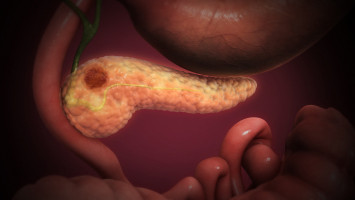
Announced today in the peer-reviewed Journal of Cellular and Molecular Medicine, a new publication by Majchrzak-Stiller, et al (2023) details the multiple sites of action of GP-2250 in the disruption of energy production of cancer cells and the downregulation of tumour promoting transcription factors.
GP-2250 is a highly selective yet broadly active cancer therapeutic with a unique mechanism of action that suppresses cancer by disrupting its energy metabolism, leading to cancer cell death through several validated mechanisms.
Cancer cells depend on aerobic glycolysis to generate energy (ATP).
The inhibition of the key enzymes (hexokinases and GAPDH) in aerobic glycolysis by GP-2250 reduces the ATP that cancer cells require, and this induces oxidative, metabolic, and hypoxic stresses in the cancer cells.
Normal cells are not affected since they can depend on the much efficient production of ATP through oxidative phosphorylation as well, which cancer cells have lost.
In addition, critical enzymes and transcription factors downstream from these initial enzymes’ inhibitions cause multiple deleterious effects on cancer cells, including growth suppression, inhibition of proliferation, and cell death by apoptosis.
A key tumour promotor, the transcription factor NF-kB, is inhibited directly by GP-2250, which causes a reduction in the rate of cancer cell growth and proliferation and apoptosis induction.
GP-2250 is currently being studied in a phase 1 clinical trial for pancreatic cancer.
“This publication represents an important milestone for the development of GP-2250. Our team is impressed by these key findings which further support the anticancer activity of GP-2250 because of disruption of energy metabolism and inhibition of tumour promotion by NF-κB. Importantly, these data bolster our understanding of the mechanism of action and deepen our confidence in its potential ability to improve the effectiveness of cancer treatments and quality of life for patients,” said Greg Bosch, Chairman and CEO.
This research was conducted at St Josef-Hospital, Ruhr-University Bochum, Germany.
The team studied the hypothesis that GP-2250 induces an energy deficit, which was tested by measuring the level of ATP in two human pancreatic cancer cell lines BxPC314 (ATCC—LGC Standards GmbH) and Panc TuI (ATCC—LGC Standards GmbH).
Results of the preclinical study showed that at the lowest dose of GP-2250 tested (250 μM), a significant decrease in ATP was apparent at 6 hours in both pancreatic cancer cell lines.
The decrease in ATP preceded the loss of cell viability.
A further decrease in ATP was apparent at the same time point with 500 μM of GP-2250 in both cell lines.
These findings of a drug-induced deficit of ATP show an inhibition of energy metabolism by GP-2250.
Similarly, the transcription factor NF-κB was inhibited at the same early time point of 6 hours in both cell lines demonstrating the impact of GP-2250 on down regulating tumour promoting genes.
“As GP-2250 has shown antineoplastic activity in pancreatic cancers (both ductal and neuroendocrine tumours) as well as in other tumour cell lines, we expected GP-2250 to target a common feature of cancer cells such as aerobic glycolysis, a hallmark of cancer metabolism. We are pleased with the results GP-2250 demonstrated, and the metabolic and transcriptional findings provide molecular targets for GP-2250. We look forward to further evaluating GP-2250 and its potential as an important treatment for a broad range of cancers,” added Prof Dr med. Chris Braumann, Chief of General, Visceral & Vascular Surgery, University of Duisburg-Essen, Germany; Head of Molecular and Clinical Research at Ruhr-University of Bochum, Germany.
Source: LaVoieHealthScience
We are an independent charity and are not backed by a large company or society. We raise every penny ourselves to improve the standards of cancer care through education. You can help us continue our work to address inequalities in cancer care by making a donation.
Any donation, however small, contributes directly towards the costs of creating and sharing free oncology education.
Together we can get better outcomes for patients by tackling global inequalities in access to the results of cancer research.
Thank you for your support.